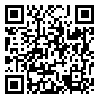1. Zimbardo P, Maslach C, Haney C. Reflections on the Stanford prison experiment: genesis, transformations, consequences. In: Obedience to Authority. Psychology Press; 1999. pp: 207–52.
2. Adams JS. Toward an understanding of inequity. J Abnorm Psychol. 1963;67:422–36. [
DOI]
3. Shahbazi M, Vazini taher A. A Survey to the mental health and self-esteem of freshmen and seniors at a military university. Journal Mil Med. 2013;15(2):103–10. [Persian] [
Article]
4. Scott RB, Dienes Z, Barrett AB, Bor D, Seth AK. Blind insight: metacognitive discrimination despite chance task performance. Psychol Sci. 2014;25(12):2199–208. [
DOI]
5. Wells A. Metacognitive therapy for anxiety and depression. New York, NY: Guilford; 2011.
6. Valizadeh S, Emamipoor S. The effect of rational emotive behavior therapy on self-esteem of blind female students. Journal of Thought & Behavior in Clinical Psychology. 2007;1(3):43–50. [Persian]
7. Rosenthal R, Jacobson L. Pygmalion in the classroom: teacher expectation and pupil’s intellectual development. Carmarthen: Crown House; 2003, pp:145–7.
8. Wittchen HU, Fehm L. Epidemiology, patterns of comorbidity, and associated disabilities of social phobia. Psychiatr Clin North Am. 2001;24(4):617–41. [
DOI]
9. Wells A, Cartwright-Hatton S. A short form of the metacognitions questionnaire: properties of the MCQ-30. Behav Res Ther. 2004;42(4):385–96. [
DOI]
10. Ossman WA, Wilson KG, Storaasli RD, McNeill JW. A preliminary investigation of the use of Acceptance and Commitment Therapy in a group treatment for social phobia. International Journal of Psychology & Psychological Therapy. 2006;6(3):397–416.
11. Connor KM, Davidson JR, Churchill LE, Sherwood A, Foa E, Weisler RH. Psychometric properties of the Social Phobia Inventory (SPIN). New self-rating scale. Br J Psychiatry. 2000;176:379–86. [
DOI]
12. Wells A, Cartwright-Hatton S. A short form of the metacognitions questionnaire: properties of the MCQ-30. Behav Res Ther. 2004;42(4):385–96. [
DOI]
13. Woody SR, Chambless DL, Glass CR. Self-focused attention in the treatment of social phobia. Behav Res Ther. 1997;35(2):117–29. [
DOI]
14. Coopersmith, S. Coopersmith Self-Esteem Inventory. Palo Alto, CA: Consulting Psychologists Press; 1967.
15. Delavar A. Educational and psychological research. Tehran: Roshd Pub; 2011, pp:82–4. [Persian]
16. Masoudnia E. Self-efficacy and social phobia: evaluation of bandura’s social cognitive model. Psychological Studies. 2008;4(3):115–27. [Persian] [
DOI]
17. Shirinzadeh Dastgiri S, Goudarzi M, Rahimi C, Naziri G. Study of factor structure, validity and reliability of metacognition Questionnaire–30. Journal of Psychology. 2009;12(4):445–61. [Persian]
18. Bögels SM, Mansell W. Attention processes in the maintenance and treatment of social phobia: hypervigilance, avoidance and self-focused attention. Clin Psychol Rev. 2004;24(7):827–56. [
DOI]
19. Khayyer M, Ostovar S, Latifian M, Taghavi MR, Samani S. The study of mediating effects of self-focused attention and social self-efficacy on links between social anxiety and judgment biases. Iranian Journal of Psychiatry and Clinical Psychology. 2008;14(1):24–32. [Persian] [
Article]
20. Herz L, Gullone E. The relationship between self-esteem and parenting style: A cross-cultural comparison of Australian and Vietnamese Australian adolescents. Journal of Cross-Cultural Psychology. 1999;30(6):742–61. [
DOI]
21. Siadat SM. Effects of social skills teaching on the self-esteem and identity dimensions of the labor children. Educational Psychology. 2015;11(37):83–101. [Persian] [
Article]
22. Nourian L, Aghaei A, Ghorbani M. The efficacy of acceptance and commitment therapy on weight self-efficacy lifestyle in obese women. Journal of Mazandaran University of Medical Sciences. 2015;25(123):159–69. [Perisan] [
Article]
23. Hayes SC, Strosahl KD, Wilson KG. Acceptance and commitment therapy: An experiential approach to behavior change. New York, NY, US: Guilford Press; 1999, pp:165–71.
24. Ahmadi MS, Hatami HR, Ahadi HR, Asadzadeh H. A study of the effect of communication skills training on the female students’ self-efficacy and achievement. New Approaches in Educational Administration. 2014:4(4):105-16. [Persian] [
Article]
25. Fledderus M, Bohlmeijer ET, Pieterse ME, Schreurs KMG. Acceptance and commitment therapy as guided self-help for psychological distress and positive mental health: a randomized controlled trial. Psychol Med. 2012;42(3):485–95. [
DOI]
26. Batten SV, Hayes SC. Acceptance and commitment therapy in the treatment of comorbid substance abuse and post-traumatic stress disorder: a case study. Clinical Case Studies. 2005;4(3):246–62. [
DOI]
27. Ahmadi M, Hatami, H. Ahadi, H. Asadzadeh, H. he impact of social skills on anxiety and self esteem of high school students in Baghmalek. Yaftehaye no dar ravanshenasy. 2009;95-116.[Persian] [
DOI]
28. Heydarpour S, Dokaneheifard F, Bahari S. The effect of training communication skills to increase self-esteem and low cagey disables physically Tehran province. Quarterly New Ideas in Education Science. 2008;3(4):41-52.
29. Byabangard E. How to promote self - respect in children and adolescents. Tehran: Association of Parents and Trainers Pub;2017, pp: 42–5. [Persian]
30. Dorothy R. Keys of education of the basic life skills in the children and adolescent. A Qytasy. (Persian translator). Tehran: Saberin Publication; 2012.
31. Pourfaraj Omran. The effectiveness of acceptance and commitment group therapy in social phobia of students. Journal of Knowledge & Health in Basic Medical Sciences. 2011;6(2):1–5. [Persian] [
DOI]
32. Sadock BJ, Sadock VA, MD DPR. Kaplan and Sadock’s synopsis of psychiatry: behavioral sciences/clinical psychiatry. Rezaei F. (Persian translator). Tehran: Arjamnd Pub; 2007, pp:186–8.

 ، علی فرهادی*
، علی فرهادی* 
 2، کوروش گودرزی1
2، کوروش گودرزی1 




